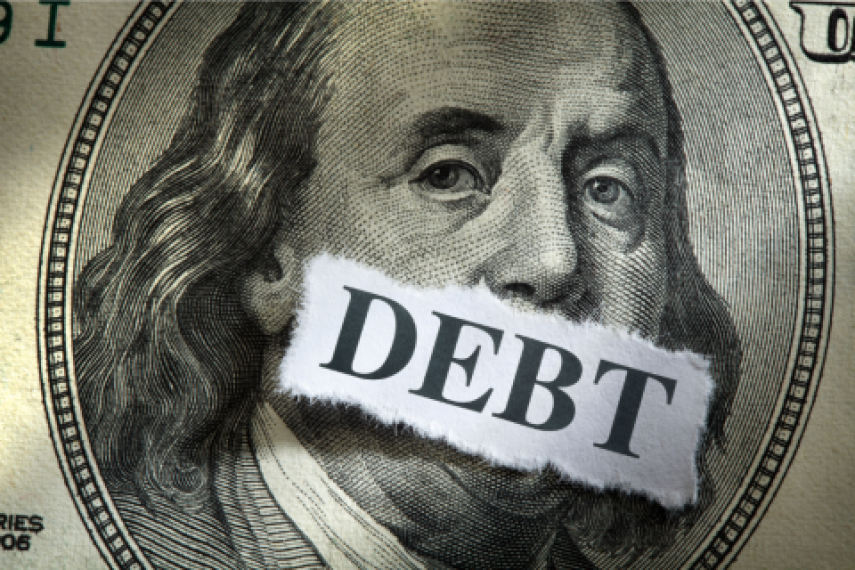
Many families are concerned that when a loved one dies, they will become legally responsible for their debt. If you leave any such obligations behind, in the event of your death, this debt can eat up assets you were hoping to go to your heirs. In some instances, family members could indeed end up assuming responsibility for an outstanding loan or credit balance.
Types of Debt and Disposition
Certain types of debt can burden other people. Here's how:
- Car Loan. The trustee can use your estate to pay your car loan. Your lender can repossess the car if payments stop. If the estate cannot pay the outstanding balance on the car loan the person who inherits your car, for the most part, can just continue making payments. That may keep the lender from taking action.
- Mortgage. If you inherit a home or if you were the joint homeowner with the deceased, then you would be responsible for the outstanding balance and mortgage payments. However, federal law prohibits lenders from pressuring the joint homeowner to pay the home's mortgage off immediately after the co-owner dies. The trustee can use the estate to pay the mortgage if there isn't a co-owner. If the estate does not have enough money, the person who inherits the home can take over the mortgage payments.
- Credit Cards. Credit card companies are pretty much out of luck if your estate cannot pay off your credit card balances since the debt is an unsecured loan and the holder of the debt has no asset to claim. However, if there's a joint account holder, they will have to pay the unpaid balances. Authorized users of your credit cards are not held responsible for the balances. Spouses have to pay any credit card debt you both incur during the marriage if they live in a community property state.
- Home Equity Loan. Any person who inherits your home is responsible for paying off a home equity loan. In fact, the lender can insist the person repays the loan off immediately upon your death. That could require them to sell the home. However, lenders may work with them to allow them to take the loan's payments over.
- Student Loans. Private student loan debt should come out of the estate, but if the estate does not have enough assets, lenders do not have any recourse to get paid for these unsecured obligations. However, if there's a co-signer on the student loan, they will be responsible for the remainder of the loan. The spouse is responsible for paying back any student loan debt you take out during the marriage if they live in a community property state. Certain lenders like Sallie Mae may forgive student loan debt upon death. Following your death, federal student loans become dismissed. If the parent of a student has a federal PLUS loan out, that will be dismissed in the event of death of either the student or parent.
How Debts Can Be Paid
After you die, your estate is responsible for any debt you leave behind. Your estate is all assets you own upon your death. Probate is the term for the process of paying off your debt and distributing what's remaining.
Your estate's trustee deals with your estate and will after your death and pays off your debt using available assets. That may mean selling your property to acquire money or writing checks out of the deceased's bank account. If your estate does not have enough money to pay your debt, however, the creditors usually write it off.
Many people purchase a life insurance policy, so they have some money to leave behind to their family to help with final expenses and to pay off any remaining debt.
Avoiding Burdening Your Family
The best way you can ensure your family does not end up with the burden of your debt is to not get into debt in the first place. By sticking to a budget and keeping an eye on your credit report, you can maintain a lifestyle within your financial means.
Life Insurance
As mentioned, life insurance is an option to ensure everything is covered upon your death. Just keep up with your insurance policy's monthly premiums and meet with an estate planning lawyer to protect your loved ones.
Have a Will
You can leave behind substantial financial stress for your family if you plan poorly. For instance, by not having a will or designating beneficiaries for your assets, your state will be the one to decide who gets what.
If you pass away without a will, your state of residence writes a will for you. Chances are, your wishes may be different from your state laws. Plus, having the courts make the decisions can get expensive, and they get paid before your creditors and beneficiaries. The last thing you want is for outstanding debts and court costs to eat away at your estate.
Remember, spouses who co-sign on loans or are joint account holders are typically responsible for paying off the remaining debt.
The Federal Trade Commission (FTC) states that debt collectors may contact the spouse, trustee, administrator, and parents or guardians of a deceased minor child to attempt to collect a debt. However, debt collectors cannot mislead any of these people into thinking they must pay off debt for which they are not responsible. Your loved ones can stop debt collectors from contacting them and have the right to do so by sending a letter.